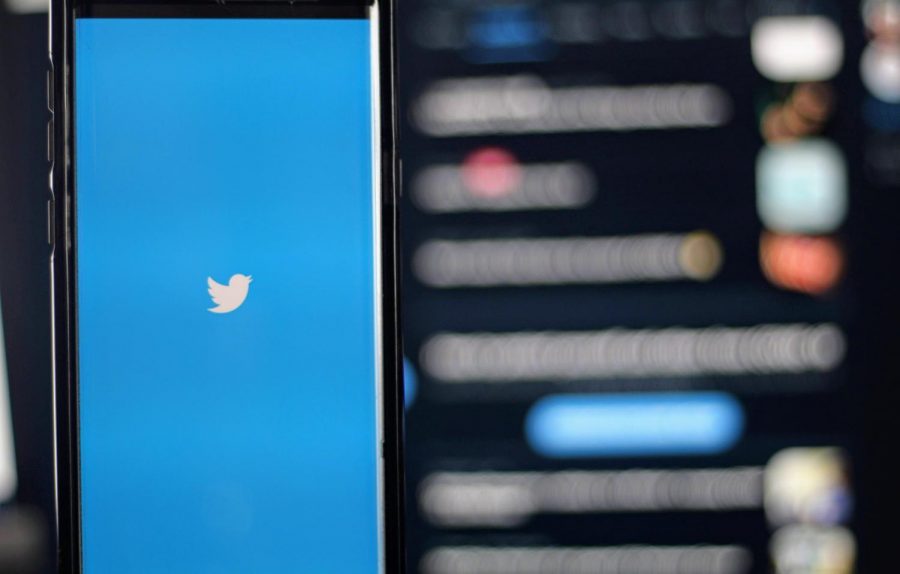‘Deplatformed’ : Trump’s Social Media Suspension
In light of the insurrection of the U.S. Capitol, what does deplatforming Trump from social media really mean for freedom of speech in this country?
On Friday, January 8th, 2021, Twitter permanently suspended Donald Trump’s Twitter account. In a blog post, the company noted “After close review of recent Tweets from the @realDonaldTrump account and the context around them — specifically how they are being received and interpreted on and off Twitter — we have permanently suspended the account due to the risk of further incitement of violence.”
On January 8th, 2021 Twitter announced that President Trump was banned from using the social media platform indefinitely. Within the next few days, various other social media platforms and websites, such as Facebook, Instagram, Reddit, Shopify, and TikTok, followed in a similar fashion, banning Trump permanently.
Many conservative pundits and right wing commentators have called the ban imposed on Trump and many Republican politicians an act of censorship that is in violation of their freedom of speech protected by the First Amendment. But the insurrection on the United States Capitol on January 6th, 2021, where hundreds of Trump supporters and right-wing conspiracists stormed the Capitol during the counting of Electoral College votes, demonstrated the true impact words have on our nation. Six people lost their lives during the attack on the Capitol, highlighting the deep damage and impact that Trump brought onto the American people during his presidency.
This all started on the night of Election Day, where Trump urged his supporters to “stop the steal.” Within these two months leading up to the Electoral College count, Trump invoked in his supporters this call to action. Through his daily tweets, he kept on pushing the narrative that the election was rigged, as news sources reported Trump’s repeated losses in many swing states. Facebook groups formed and right-wing groups such as the Proud Boys became more active, centering around the narrative that Republicans were the righteous winners of the election. Multiple rallies occurred throughout the country and in Washington D.C., some of which turned violent. Online discussions discussed the actual possibilities of storming the Capitol.
On January 6th, 2021, hours before Congress met to count the votes of the Electoral College of the 2020 presidential election, Trump urged his followers in a speech at the Capitol to “fight like hell” and take over the Capitol. Then, history was made. “Trump promoted the raiding of the capital as a leader of this county. This is inexcusable,” said Nicholas Chan ’21.
Social media was a signature part of Trump’s presidency, playing a crucial role in cementing his radical fan base and for exacerbating the tensions that led up to the storming of the Capitol. Moreover, there were multiple occurrences where Trump used his platform to push harmful narratives and hate speech. These private social media platforms that ‘deplatformed’ Trump and various associated individuals are not public enterprises, and they are within their rights to dictate their own limits of speech. They are able to ban anyone who uses their platform and monitor what is being said, and therefore the First Amendment is not being violated as the government itself is not violating an individual’s ability to express their opinions.
“[The social media ban] is totally justified. A sitting president is not entitled to an account on a private company’s platform if they violate the terms of service. In fact, Twitter spokespeople mentioned he would have been banned long ago, had he not possessed a degree of immunity. Trump’s sedition was the last straw, but it was not the sole purpose of his ban. I vividly remember when he retweeted a video in which the words “white power” were uttered; hate speech is starkly against the company’s guidelines. He can play it off as an accident or unimportant, but I’m not naive enough to believe that. If we want to discuss whether social media platforms should be able to censor certain content, or if Section 230 should be repealed, that’s another story. As it stands, however, Trump deserved every ban he received, if not more,” said Rohan Mehta ’21.
Deplatforming Trump and countless others still does not address the damage brought on by his presidency and the rise in right-wing extremism in this country, however. As Michael Batavia ’21 notes, “Social media companies should ban the members of the far-right groups responsible, rather than banning the head of the country, or, at the very least, they should have investigated Trump’s involvement in the insurrection in-depth without speedily pinning it on him.”
This move from big tech companies, although necessary, revealed the amount of power they have as social media has become more and more ingrained within our daily lives. The fact that the largest social media platforms can remove very powerful individuals in this country, such as former president Trump, shows that freedom of speech is at risk. As a result, there is a need to break up big tech companies.
“January 8, 2021 will forever live in infamy as the day a private company asserted its authority over the top executive of a country. One of the only ways to prevent this event from happening in the future is by breaking up the big tech monopolies into smaller firms so neither has the power to control free speech and neither has the ability to team up with one another to govern free speech on the Internet. With bipartisan support in Congress, this goal may soon be accomplished thus enforcing that the private big tech companies may never overreach in their power and do such a terrible thing ever again,” said Batavia.
Some truth does exist with Batavia’s statements. And now, as many notable conservative and right-wing figures lost their presence on major social media platforms, many people in the conservative movement turned to the app Parler. Notorious for its lack of censorship, the app now has become one of the few platforms with an especially strong conservative presence. And within a few days after Trump was banned on social media, Parler was taken off the App Store by Apple, Amazon, and Google.
“Recently, companies like AWS (Amazon Web Services), Google and Apple have recalled their services from Parler because of the conservative movement’s support for Trump on its platform. However, it makes no sense for these big tech companies to remove their services from Parler because of the law that governs all social media platforms: Section 230 of the Communications Decency Act. Section 230 enforces the idea that social media companies are not liable for their users’ posts, which applies to not only mainstream social media platforms but Parler as well. Why single out Parler for its users’ support of the former president if Parler is not liable for the users’ posts? If Parler is unable to be downloaded on the most common app stores, how are conservative pundits able to state their opinions on topics such as fraud in the 2020 presidential election if doing so is strongly frowned upon by the remaining social media companies in cohorts with each other? This is why diversification of the press is a key tenet in our two-party system; to enforce debate between both sides without any censorship,” said Batavia.
It is still unknown what removing Parler from various app stores means for the American conservative movement. A diverse and respectful discourse is necessary for a healthy American society and public forum, but to what extent does that excuse the radical behavior and unjust actions that cost six American lives? As Mehta puts it, “I’m not sure how to feel. Parler is an echo-chamber, but conservatives who have gone this far have already been living in one. I suppose it grants me a little peace of mind on Twitter, which is nice. Lots of people are saying that Parler signifies a new age of right-wing extremism, but I’m not sure how true that is. When we look at the platform upon which the Republican party has stood for the last several decades, it’s a case of a wolf in sheep’s clothing. They disguised their extreme right-wing beliefs, at least in comparison to other developed democracies, in establishment politics. Now they’re just being overt about it, such as the 2020 Republican party platform that declares itself opposed to gay marriage. However, Trump has stimulated more everyday people in Deep Red states to become involved in politics thanks to his charisma.”
The point stands that deplatforming Trump and fellow right-wing politicians who incited the violence is a necessary force in maintaining the country’s stability. Social media is what allowed Trump to arise from a reality television star with zero political experience to become the most powerful person in our nation. And the lies and disrespect that have been promulgated over the last four years acted as a catalyst to the radicalization of the Republican Party, of which has now intensified the partisanship of the current political climate.

“Frankly, I believe [Trump’s ban on social media] should have happened beforehand, and as I mentioned, company officials did, too. It feels like a million years ago, but misleading information warnings did not exist prior to the Trump presidency — they are the responses of various platforms realizing they are partly to credit for his victory in 2016. And that’s nowhere close to the bottom of the barrel. They have tried so many ways of limiting his sphere of influence, but none have really been successful. To be honest, there’s no guarantee that this measure will be, either. I’m sure what happened on January 6th finally caused various platforms to mobilize with permanent suspension, but there’s likely a long, enumerated list of various other offenses that could have resulted in one,” said Mehta.
And while the damage has been done, stripping Trump of his social media platforms was a necessary step toward the right direction in American history. It brought attention to many conservatives about the divisions within the movement. These actions by major social media giants are important in making sure that another insurrection does not happen again, and for protecting the general safety of the American people. The chance for harmful rhetoric to circulate hopefully becomes mitigated. Confidently speaking, however small these actions may seem, deplatforming Trump along with fellow associated officials and public figures will heal the wounds that have been casted on our nation’s livelihood.
“It’s hard to evaluate the efficacy of unilateral censorship. I think the Capitol breach itself was sufficient to get a lot of moderate Republicans to distance themselves from the New Republican Party, but the rest are far gone. Obviously, it’s not going to have tangible policy change or anything, so it’s not particularly substantive, but it may be allegorical. Trump supporters don’t really care, to be honest. They just call Instagram and Twitter the ‘big corporations’ that occupy the ‘swamp’ that Trump was draining,” said Mehta.
“[The social media ban] is totally justified. A sitting president is not entitled to an account on a private company’s platform if they violate the terms of service. In fact, Twitter spokespeople mentioned he would have been banned long ago, had he not possessed a degree of immunity. Trump’s sedition was the last straw, but it was not the sole purpose of his ban. I vividly remember when he retweeted a video in which the words “white power” were uttered; hate speech is starkly against the company’s guidelines. He can play it off as an accident or unimportant, but I’m not naive enough to believe that. If we want to discuss whether social media platforms should be able to censor certain content, or if Section 230 should be repealed, that’s another story. As it stands, however, Trump deserved every ban he received, if not more,” said Rohan Mehta ’21.
Caleb Yam is an Editorial Editor for ‘The Science Survey.' He enjoys journalistic writing because it allows for the open and concise expression of a...

